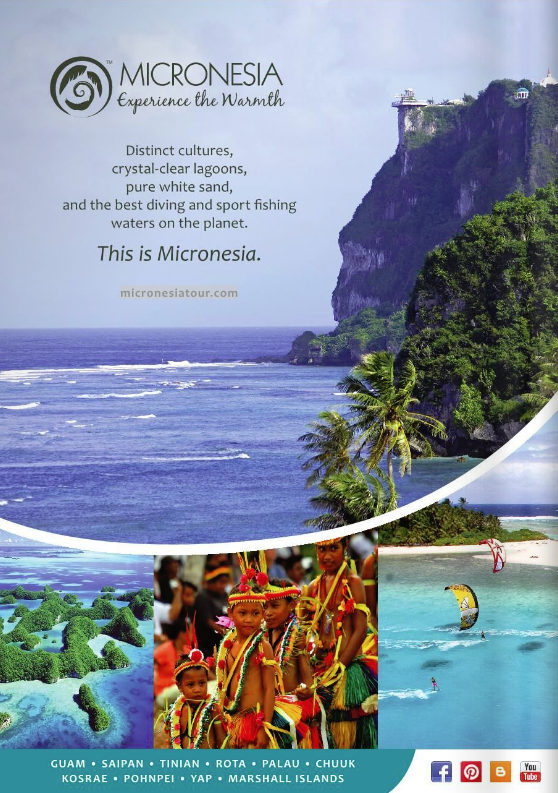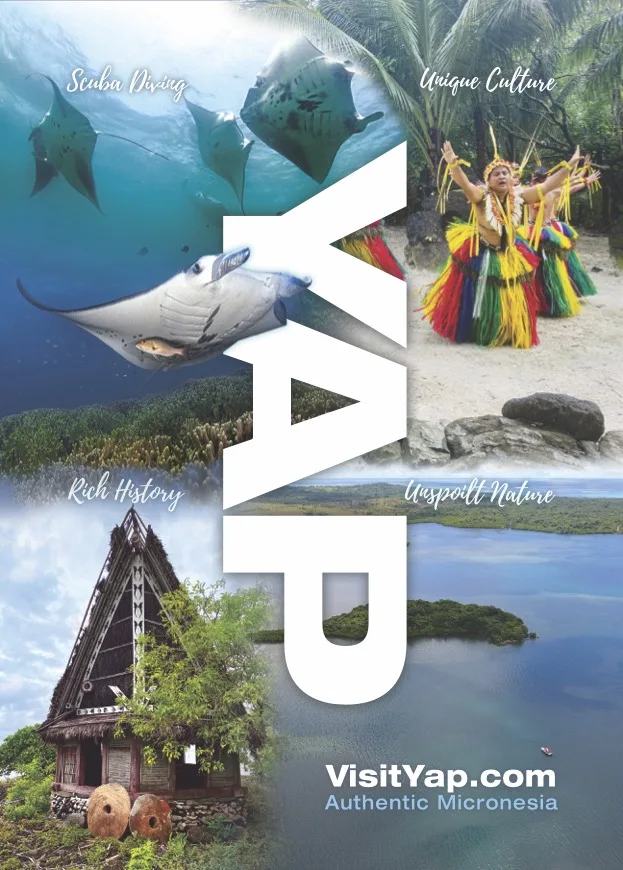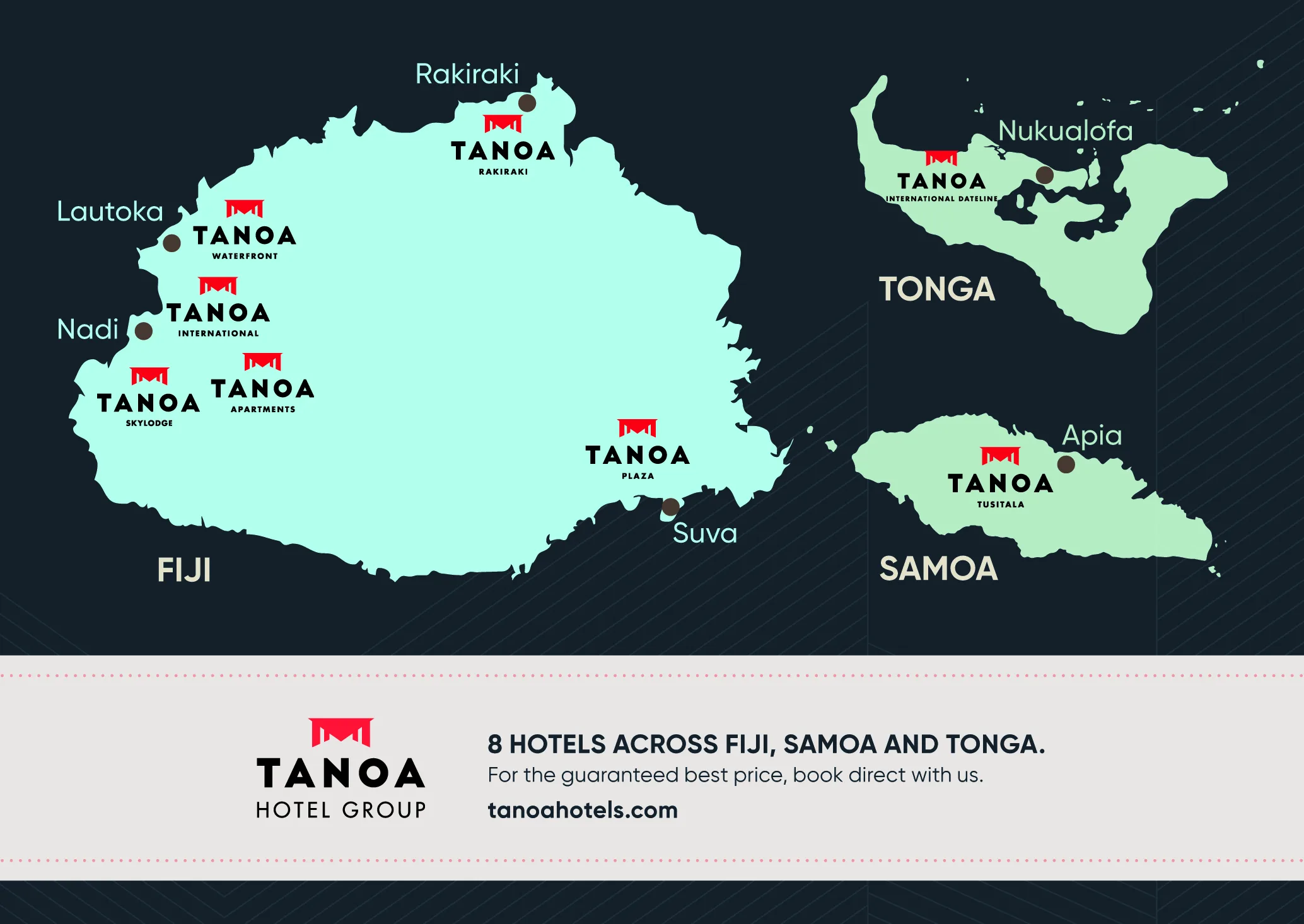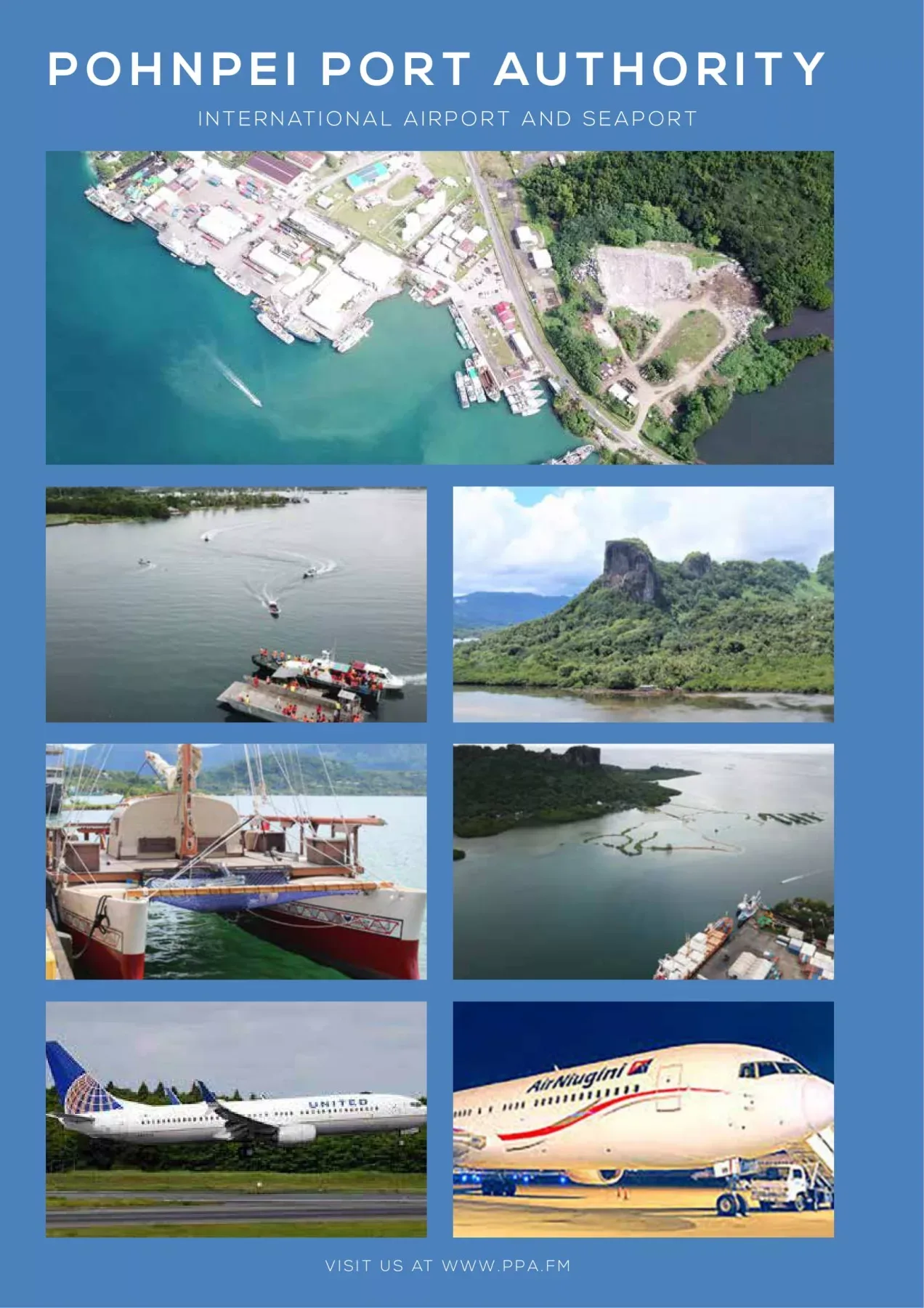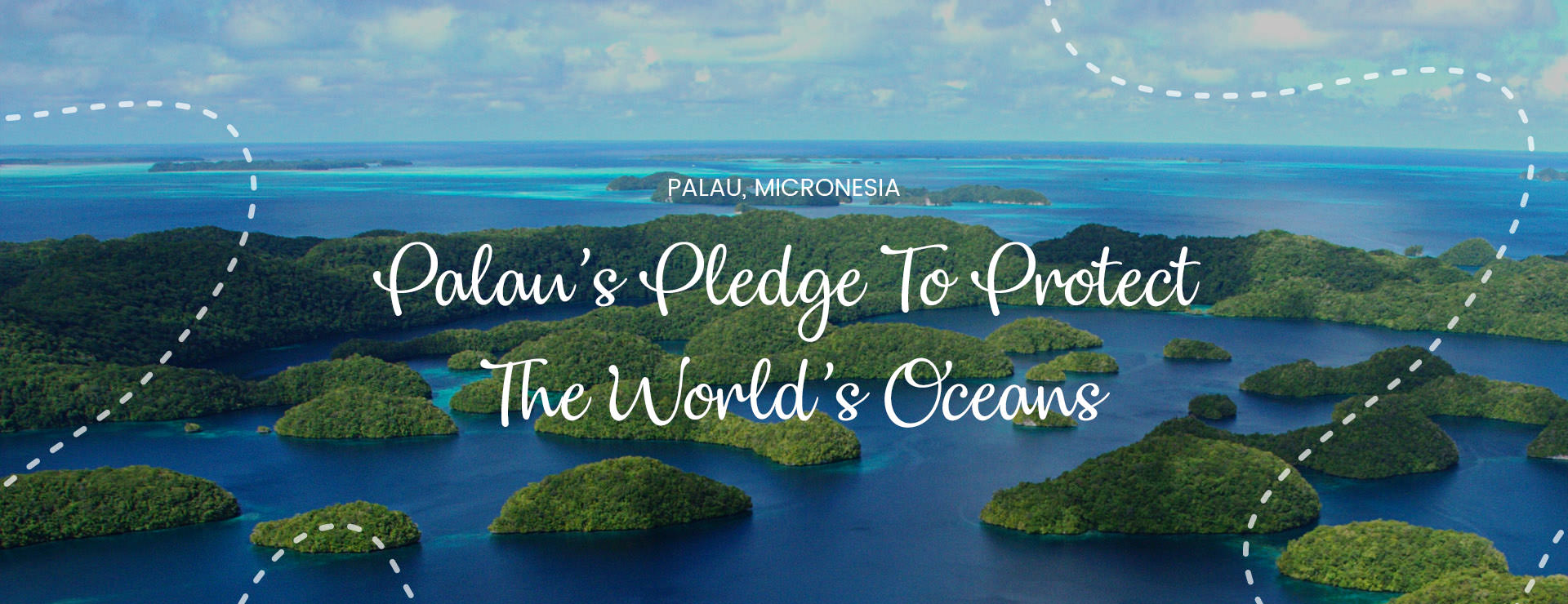
PALAU’S PLEDGE TO PROTECT THE WORLD’S OCEANS
Across the world, oceans are threatened by over-fishing, pollution, global warming and acidification. And this threat is felt nowhere more keenly than in Palau.
The Republic of Palau is a small nation in the Western Pacific, comprising 340 islands and home to just 21,000 people. The overarching region of Micronesia is home to most of the world’s coral biodiversity, and there are more than 1,300 species of fish and 700 species of coral in Palau alone.
Caretakers of the oceans
Palau’s cultural life, economy, identity, traditions and social practices are all entwined in a symbiotic relationship between the people and the seas. Palauan children are taught of their responsibility as caretakers of the oceans, and in wider society the adage is firmly held that, ‘we do not inherit the earth from our parents, we borrow it from our children’.
As a consequence, Palau has a strong history of environmental protection. And in recent years, it has risen to global prominence on the back of its work to combat the threats to marine life and the ocean environment.
Drew Caputo, Vice President of Litigation for Lands, Wildlife & Oceans, Earthjustice, said:
‘Palau is a world leader in marine conservation. No other country has done more’.
The recent El Nino event lead to the death of much of Palau’s soft and hard coral, and consequent departure of many fish: a devastating event for the country. Not only was the economy affected by these losses, but many Palauan people were left extremely dispirited, in despair at the possibility of upholding their caretaking responsibilities.
However, Palau returned to its roots, combining traditional approaches and modern scientific advances. In this way, it has developed new measures to protect its oceans.
A long history of world-firsts in conservation
Acting as ‘stewards’ of the ocean, Palauans have always sought to work within the limits of environmental protection needs. In recent years, the traditional conservation principles have been applied to new environmental challenges, and Palau has developed powerful, innovative responses to global threats.
Palau created the first shark sanctuary in 2001 in its national waters; and was the first country to ban the practice of bottom trawling. In 2015, it opened the Palau National Marine Sanctuary – one of the largest fully-protected, no-take zone in the world.
At the end of 2017, it was announced that all visitors to the country would be required to sign a statement of commitment to environmentally-responsible behaviour during their stay – a pledge underpinned by legislation and the risk of heavy penalty.
Facing climate change, ocean acidification, pollution and overfishing, Palau has sought to resolve these present challenges using the tools of its past, and in doing so is building a better future for all.
The Palauan tradition of ‘Bul’
Amongst these tools is the ancestral principle of ‘Bul’. This practice, in existence for many centuries, affords Palau’s traditional leaders the power to place an immediate halt to the over-consumption or destruction of any species, place or thing.
The Council of Chiefs may place reef areas off limits to fishing during known fish spawning and feeding periods, for instance. This identifies and acknowledges vulnerabilities in the ecosystem and ensures that there will be plentiful fish to catch during other times of the year: thus preserving livelihoods and strengthening food security.
This old practice has formed the basis for Palau’s new Protected Area Network (PAN) law and network of protected areas, and it forms the symbol of the Palau National Marine Sanctuary and the Palau Pledge.
The ocean has provided life for people on the islands for over 2,000 years, and these conservation measures are intended to ensure that it continues to do so for many thousands more.
The President on sustainability
The President of Palau, Tommy E. Remengesau Jr, is himself a long-time advocate for conservation and sustainability. He has stressed the importance of conservation for both Palau and the rest of the world:
While Palau may be a small-island nation, we are a large ocean-state and conservation is at the heart of our culture. We rely on our environment to survive and if our beautiful country is lost to environmental degradation, we will be the last generation to enjoy both its beauty and life-sustaining biodiversity. This is not only true of Palau. Human impact on our earth’s environment is one of the biggest challenges facing our world today. As a small country we feel the impact of these actions acutely.
The Palau Pledge
Perhaps Palau’s most innovative measure is the Palau Pledge. The world’s first ‘conservation pledge’, it calls upon visitors to the country to make a compulsory promise, directly to Palau’s children, to act in an environmentally responsible manner during their stay in the country.
A commitment to the pledge is required for a visa application, and then stamped directly into visitors’ passports.
There are signs and information packs around the airport and throughout the country itself – and fines of up to $1 million USD for breaches – all of which serve to stress quite how seriously this commitment is taken.
With a population of just 21,000 people, and annual visitor numbers of around 160,000 (and growing), the management of tourism in Palau in a huge project. Despite the best efforts of government, locals and industry, the sheer volume of the tourism – and thoughtless behaviour from individual tourists – has led to damage and decline on the islands. The Pledge has thus been deemed necessary in order to work towards responsible, sustainable tourism.
The Palau Pledge is striking in its focus on the children of the islands. Visitors pledge to protect the environment for the sake of the children, and the in-flight promotional video features an explanation of the pledge for visitors by local children. The philosophy of the Pledge is also to be included in the educational curriculum, with a focus on the children’s own role in environmental sustainability and conservation practice.
Developed by an Australian communications agency, the Palau Legacy Project (a group of local business and marketing professionals) and the Palauan government, this new immigration policy is aimed at preserving Palau’s own unique culture and natural environment; but it is hoped to be the first of many around the world.
Laura Clarke, of the Palau Legacy Project, said:
The Palau Pledge is about helping guests understand the vital role they play in protecting Palau for the next generation. Most visitors are unaware of the serious impact their actions have or even what they can do to help. The Palau Legacy Project team came together to help communicate these important messages in a way that all guests would understand.
Palau National Marine Sanctuary Act
2015 saw the launch of one of the world’s most ambitious ocean conservation initiatives. The Palau National Marine Sanctuary Act was a landmark piece of legislation aimed at protecting Palau’s marine resources and world’s tuna stocks.
The Act saw the opening of a no-take marine sanctuary, covering an area of 500,000 square kilometres – a full 80% of Palau’s Exclusive Economic Zone (EEZ). The world’s sixth largest marine sanctuary, the Palau National Marine Sanctuary is by far the biggest no-take zone relative to country size.
All fishing and mining is banned in the reserve, and the remaining 20% of Palau’s seas have been preserved as a Domestic Fishing Zone. This allows traditional and domestic fishing activities to continue to provide fish for the domestic market.
Environmental conservation is so often a question of balance. There is the need to balance growth with sustainability, the needs of the economy with the needs of the environment. The Palau National Marine Sanctuary has been designed to achieve and preserve this harmony.
The Act was passed after more than a year of debate and despite pressure from fishing and drilling lobbyists, and was welcomed by islanders, governors and traditional leaders. Thousands of Palauans demonstrated in favour of the Act and signed supportive petitions.
Upon the signing of the legislation, President Tommy E. Remengesau Jr. declared,
Today is a historic day for Palau, proving that a small island nation can have a big impact on the ocean. Island communities have been among the hardest hit by the threats facing the ocean. Creating this sanctuary is a bold move that the people of Palau recognise as essential to our survival. We want to lead the way in restoring the health of the ocean for future generations.
Senator Hokkons Baules, the lead sponsor of the Palau National Marine Sanctuary Act, said that the sanctuary would
‘help build a secure future for the Palauan people by honouring the conservation traditions of our past’.
This bold action to protect the country’s valuable ocean resources has been praised by environmentalist and conservationist groups across the world. Large, no-take marine reserves are considered crucial to efforts to build marine resilience to climate change, and Palau’s efforts have provided evidence that positive outcomes are possible.
The Earthjustice organisation provided legal support to the government of Palau during the development of the legislation, ensuring that the government would still be able to meet the requirements of its international treaties following the implementation of the Act. The Earthjustice international programme attorney, Erika Rosenthal, described the sanctuary as,
a major contribution to healthy oceans and reef systems that are more resilient to climate change, both for the people of Palau and for the world. Ocean biomass conservation—through fisheries conservation and management and marine protected areas — is critical to maintaining the ocean’s function as an effective carbon sink.
The President assured the UN oceans conference in 2017 that Palau would remain open and welcoming to international visitors, noting that his country would continue to promote scuba diving, snorkelling and eco-tourism. The reduction in commercial fishing would be offset by growth in other areas, he said.
We’re not just closing our waters and throwing away the key. We’re closing our waters because we will do our part in making sure that there’s healthy stocks of fish in Palau that can migrate to other places, and that there are other options to grow the economy. These are important ways to make a living and at the same time preserve the pristine environment that we have been blessed with in Palau.
Thinking globally, acting locally
The unparalleled experience and expert knowledge of Palauan fishermen has been exploited to full effect in the development of the country’s legislation and conservation projects. Local knowledge is an invaluable resource, particularly in terms of identifying the areas in need of protection.
Since 2003, the Protected Area Network law (PAN) has designated 21 areas of the country for special protection, and discussions are being held with local leaders to identify other vulnerable spaces.
Scientists are of course also being consulted, and technology used where appropriate to gather the richest possible knowledgebase.
The legislation has been developed to respond to the needs of local ecosystems and to meet the country’s commitments under the Convention on Biodiversity (CBD). It has taken to heart the environmentalist principle of ‘thinking globally but acting locally’, and has trained its sights of the local needs, whilst simultaneously seeking to constitute a model of best practice for other nations.
The ultimate goals of the PAN laws cannot be achieved without international partnerships. The ecosystem is of course global, and our knowledge of its vulnerabilities must be pooled and managed appropriately.
As Mr. Noah Idechong, Delegate to the House of Delegates, put it: ‘While there is much about the deep sea that we do not know, we know enough to understand that everything is connected’.
Opening the floodgates for global change
Palau has been setting precedents in conservation strategy for many years. It has also sent a message around the world that even very small countries – and Palau is the thirteenth smallest on earth – can make big differences to huge problems.
Measures already taken have made major contributions to international targets established by the Convention on Biological Diversity.
Plans for marine parks in Chile, New Zealand and the United Kingdom have all been announced, and Pew Charitable Trusts say that Palau’s sanctuary brings the total area of fully protected oceans to 1.9%.
However, this falls far short of the 30% needed to ensure the sustainability of fish stocks and the health of the ocean. President Remengesau Jr. has challenged the world to follow Micronesia’s example and to set aside 30% of nearshore marine and 20% of forest ecosystems for conservation by 2010.
Similarly, Palau has taken decisive action on bottom trawling – banning the practice altogether in its own waters and forbidding Palauans and Palauan companies from engaging in the industry anywhere else in the world.
Bottom trawling is considered a particularly destructive practice, as it targets deep sea fish as they aggregate around seamounts for breeding and feeding, when the fish are most vulnerable and thus at greatest risk of overfishing.
However, international cooperation is required for the legislation to achieve its aims, and the government of Palau has argued for an interim prohibition on unregulated bottom trawling in international waters.
Speaking to the UN in 2006, Noah Idechong urged UN members to work together to find global solutions, stating,
‘The Pacific philosophy that the oceans unite us rather than divide us is one which we hope will be borne out as we seek real solutions for protecting this most precious of resources’.
For more information contact
Palau Visitors Authority
Address: PO Box 256, Koror, PW 96940
Phone: +680-488-2793/1930
Email: [email protected]
Website: www.pristineparadisepalau.com
Fax: +680-488-1453

